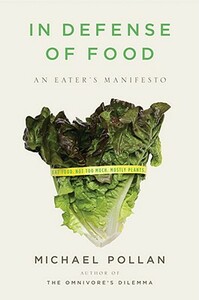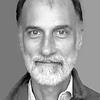Take a photo of a barcode or cover
This book was pivotal to my understanding of the food industry in America. It has inspired and educated me on how to change my eating habits. I would recommend it to anyone who wants to know the reality about the food that they eat, everything from why we focus so much on certain aspects of food to how government policies that make our health current situation in the USA possible.
Yet another book that makes me hate the food industry. This one actually got me to take supplements and finally start buying organic. YOU SHOULD TOO! Seriously! What the food industry does to process our food high in sugar (high fructose corn syrup) and salt to make us crave it should be illegal, and in turn, is all giving us cancer and/or heart disease. Stick to the outsides of the grocery store and if they make health claims on the box but are full of chemical ingredients, odds are they're not good for you.
informative
medium-paced
I think of it as a companion piece to last year's book, The Omnivore's Dilemma: A Natural History of Four Meals. If you have been with me for a while you might remember me talking about how this book has made me start looking at my food purchasing choices in terms of how far they have travelled and to start making a conscious effort to buy local whenever possible. In Defense is the book that is getting me to look at all of the low-fat, prepackaged foods I purchase (all of which are supposedly "good for me"). His basic premise (and yes, you still need to all go out and read the book!) is: "Eat food. Not too much, mostly plants and don't eat anything your great, great Grandparents wouldn't recognize as food." I am now toying with shopping at farmer's markets unless I have no other choice, starting a garden and making everything from scratch including my own yogurt.
Pollan's writing is educational and entertaining. He condemns "nutritionism" while acknowledging that he engages in it himself (particularly having to do with Omega-3 fats in this book). His recommendations for diet are healthy and smart. Even though I feel like I am reasonably educated about diet and nutrition, this book has had an impact on my choices.
Quick and apprpachable but detailed read on the problems with the Western diet and the science-ing of our eating. As with all Michael Pollan books I come away more edicated and inspired to make changes to my own habits.
Finally! This book clearly articulates what I've sensed on an intuitive level for many years- food is part of an incredibly complicated system of relationships, and any attempt to deconstruct it and create universal rules or truths about individual nutrients as they relate to one's own unique body, lifestyle and health is misguided at best, if not outright harmful. I can't say enough good things about Pollan's examination of and powerful attack against the sacred cow of "nutritionism" that has, at least in my experience and reading, never been seriously questioned despite its dreadful results and failure to prevent the steady degradation of public health over the years with the growth of the modern food industry. The expanded meaning behind his mantra: "Eat food, not too much, mostly plants" is not only based on hard scientific data, especially about what actually constitutes "food" as opposed to "food-like substances", but speaks to a deeper, more reasonable and time-tested approach to many of the ills that invariably accompany the modern Western lifestyle where ever it encroaches on traditional cultures all over the world.
Food is not something one naturally thinks needs defending. After all, those of us lucky enough to live in the first world/global north do a pretty good job of eating.
Michael Pollan instead embarks on a mission to defend real food. The kind that is grown, not manufactured. And he has some surprisingly good points. For example, he questions that strength of the evidence behind nutrition science using science and the expert opinions of nutrition scientists themselves. He explains the science (or lack thereof) behind the current food pyramid, low fat foods, pre-packaged "health foods" and shows how what we eat (and what we are told to eat) is more reflective of corporate interests than health science.
The premise can seem very conspiratorial, but Michael uses scientific reasoning and accurate historical accounts to form his argument. This book leaves you in very little doubt that our current way of eating and our culture surrounding food is making us very ill.
This book is very well written and researched. I can not find any fault with it.
Michael Pollan instead embarks on a mission to defend real food. The kind that is grown, not manufactured. And he has some surprisingly good points. For example, he questions that strength of the evidence behind nutrition science using science and the expert opinions of nutrition scientists themselves. He explains the science (or lack thereof) behind the current food pyramid, low fat foods, pre-packaged "health foods" and shows how what we eat (and what we are told to eat) is more reflective of corporate interests than health science.
The premise can seem very conspiratorial, but Michael uses scientific reasoning and accurate historical accounts to form his argument. This book leaves you in very little doubt that our current way of eating and our culture surrounding food is making us very ill.
This book is very well written and researched. I can not find any fault with it.
Nothing new information wise, but a nice reminder of what I should be doing.
3.75-4. I wanted less of the beginning and more of the end yet it pulled me in by midway.




